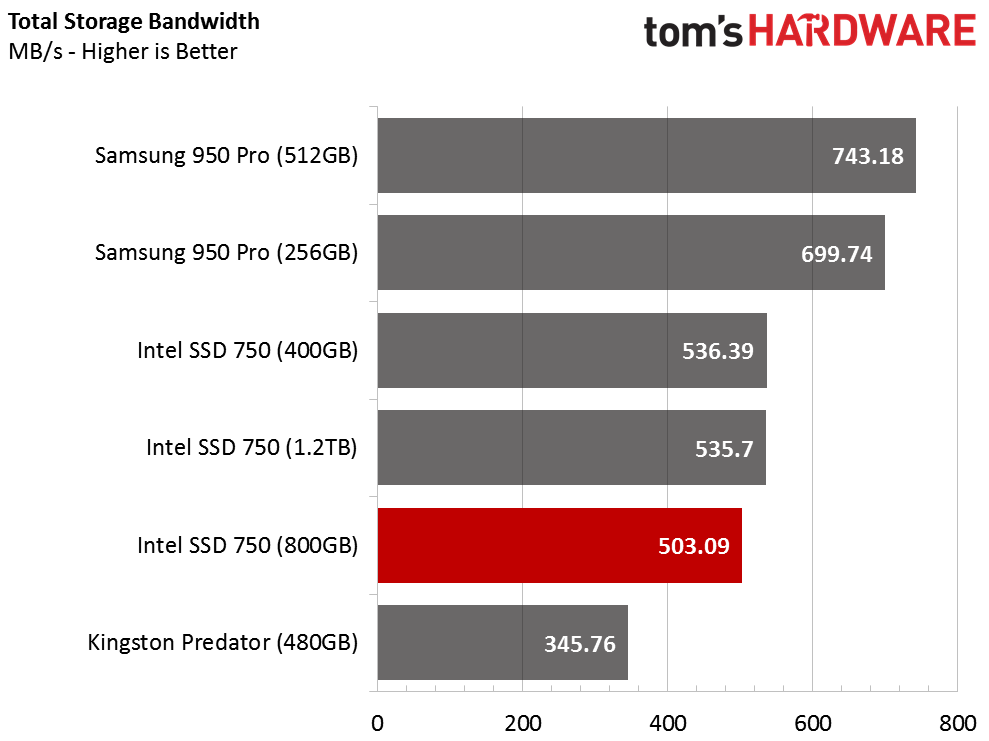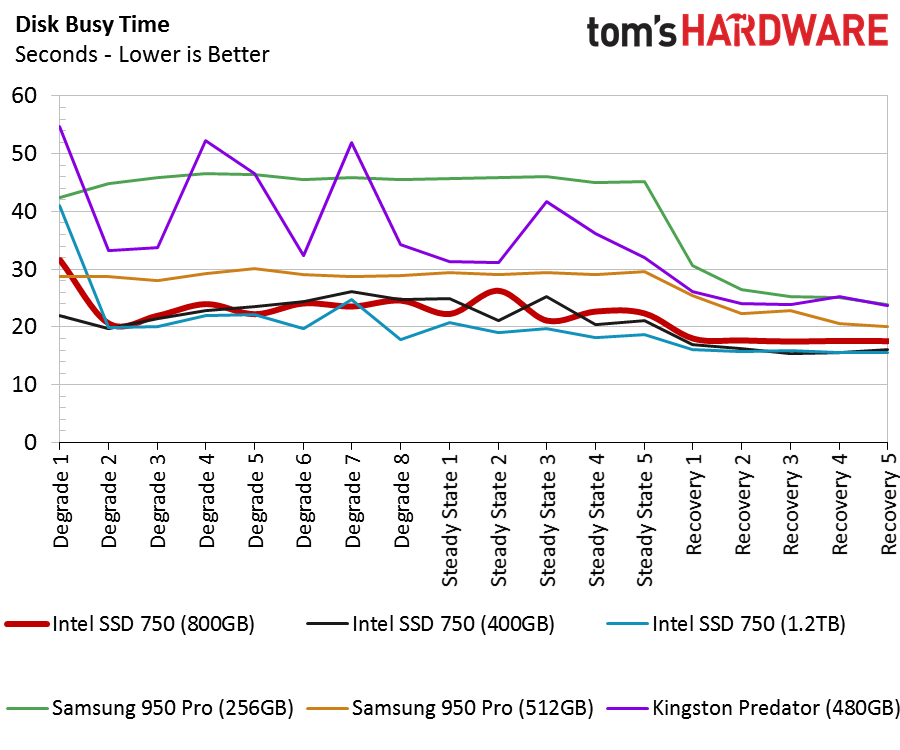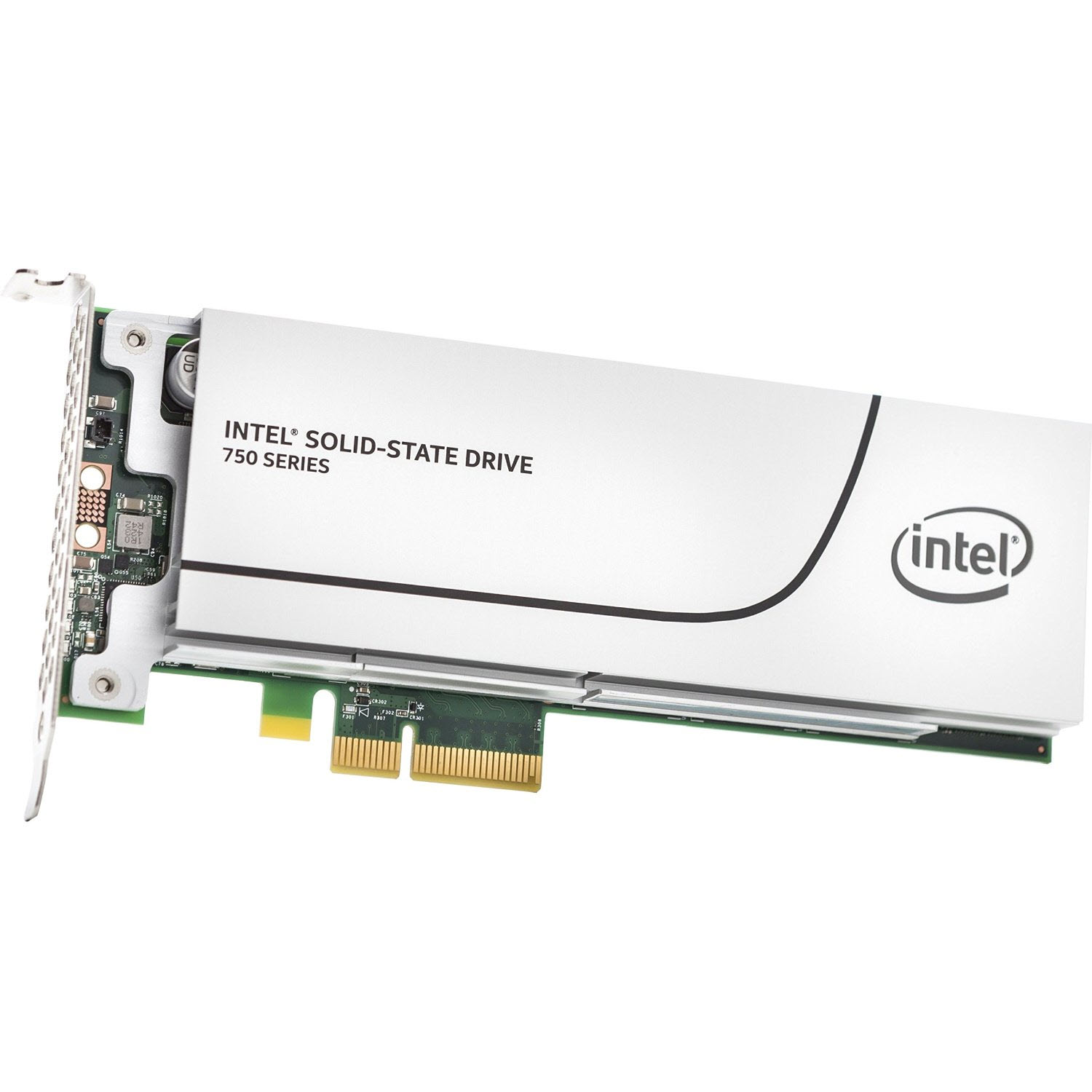Intel 750 Series 800GB NVMe PCIe SSD Review
Why you can trust Tom's Hardware
Real-World Application Performance
PCMark 8 Real-World Software Performance
For details on our real-world software performance testing, please click here.
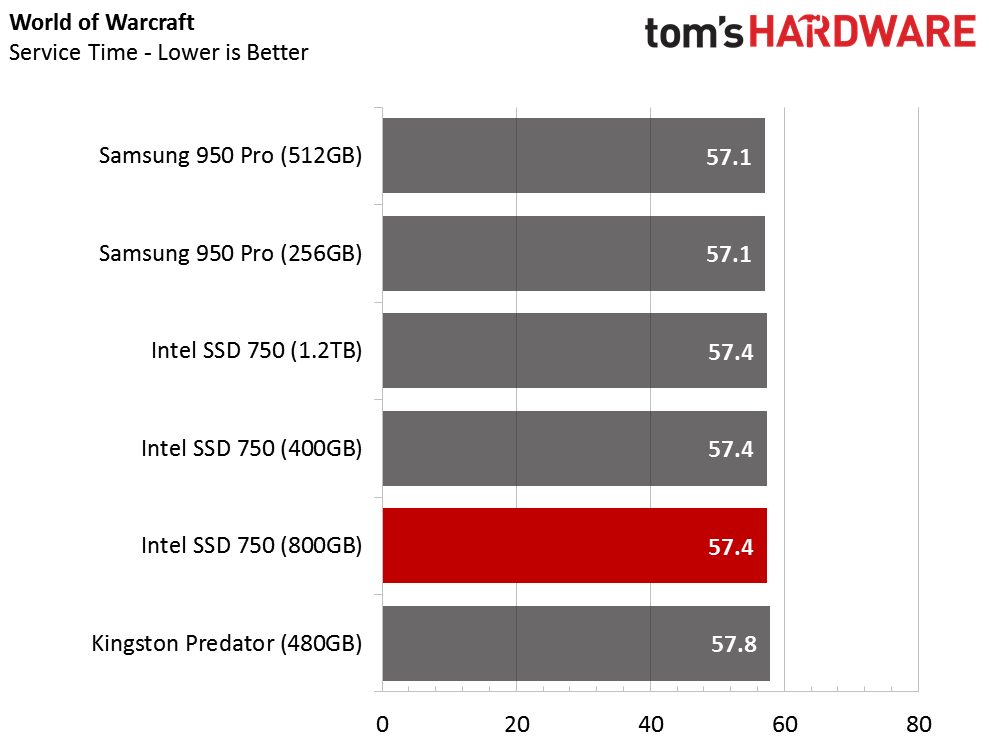
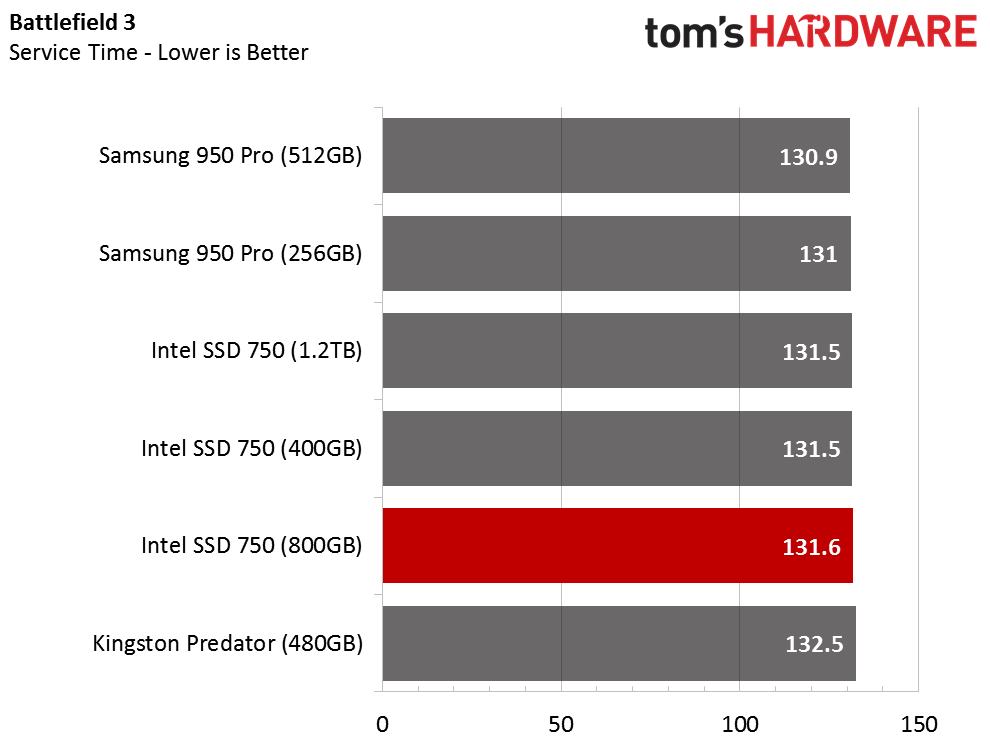
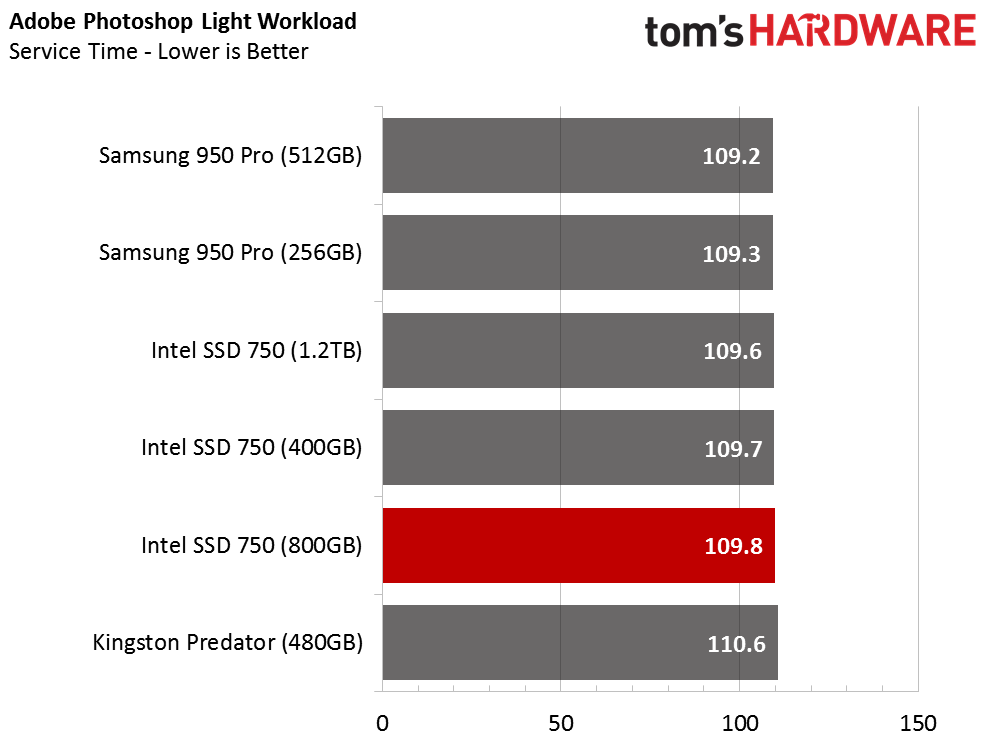
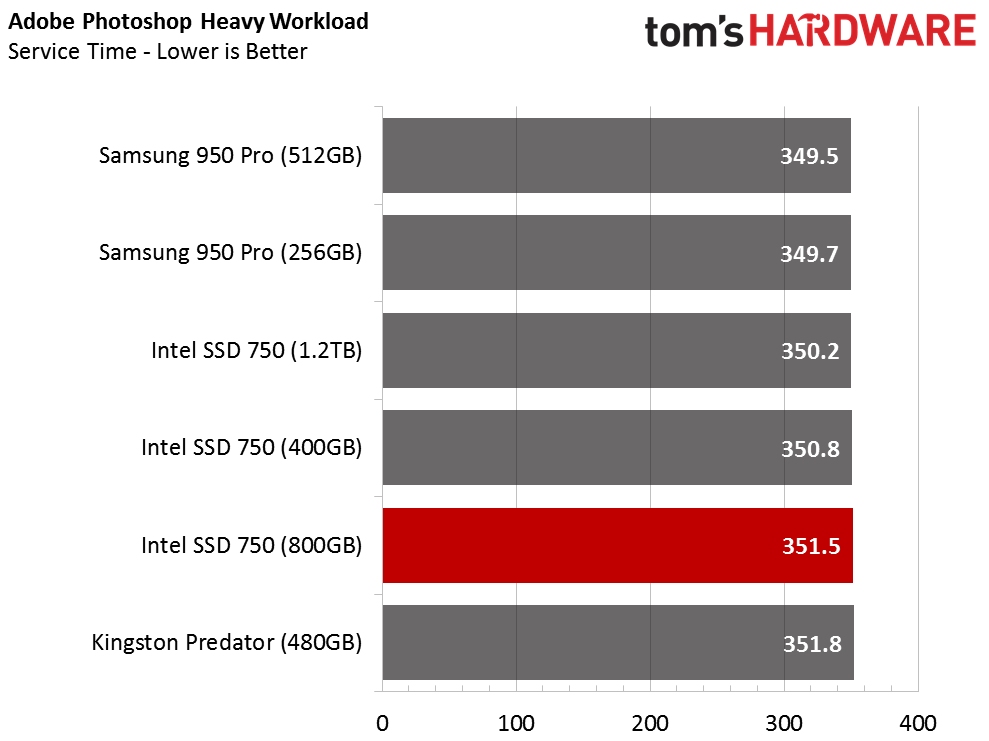
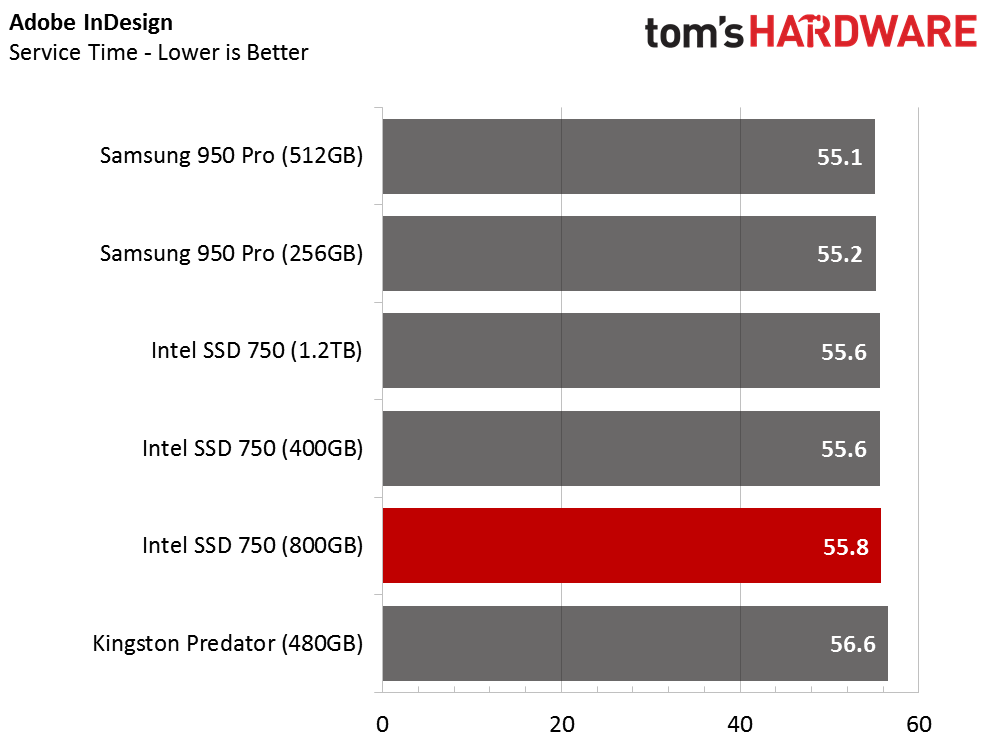
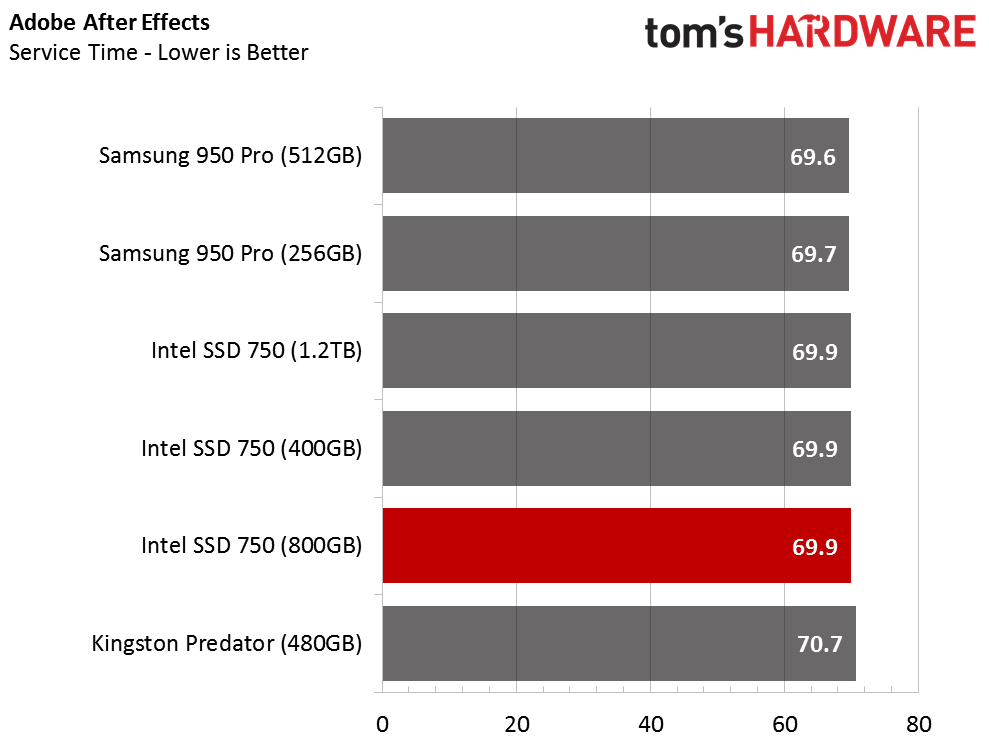
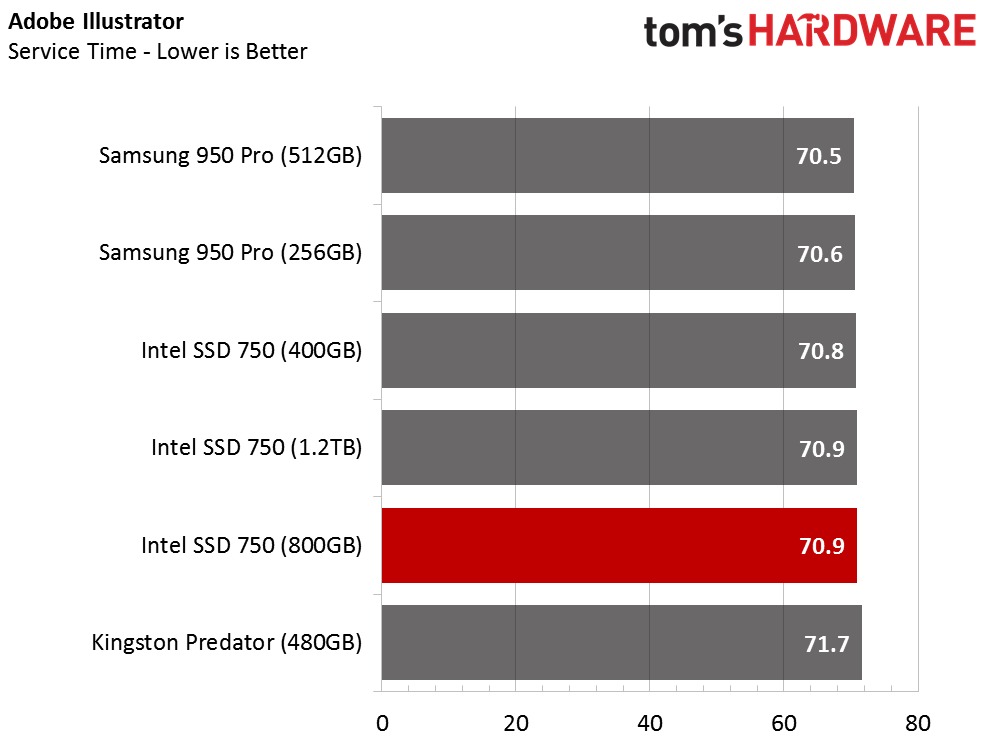
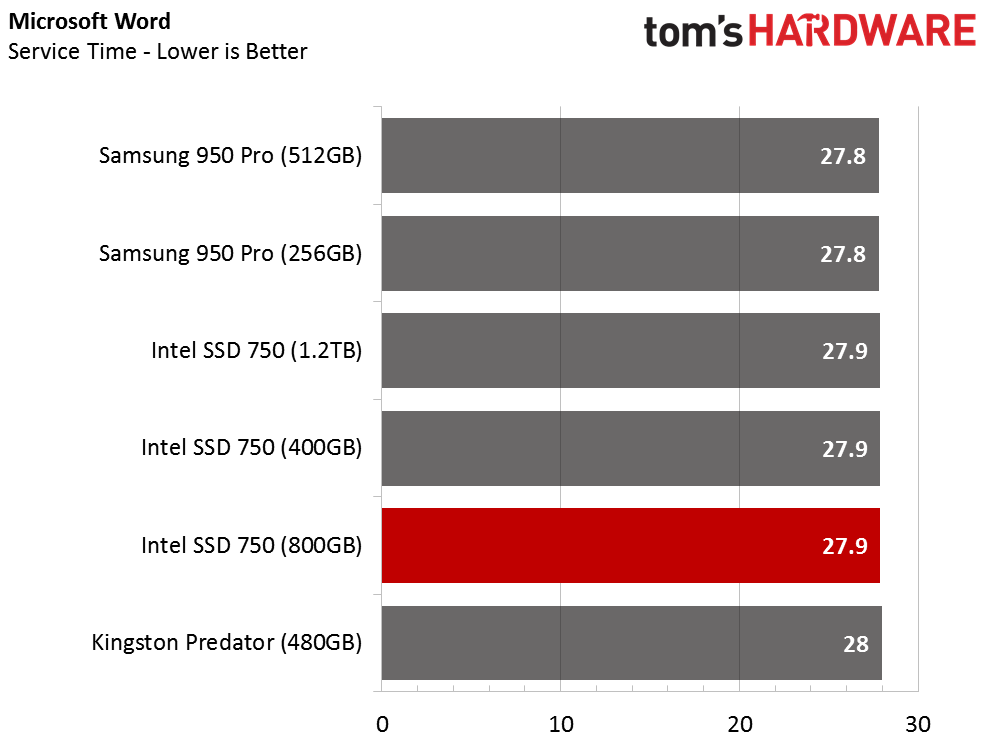
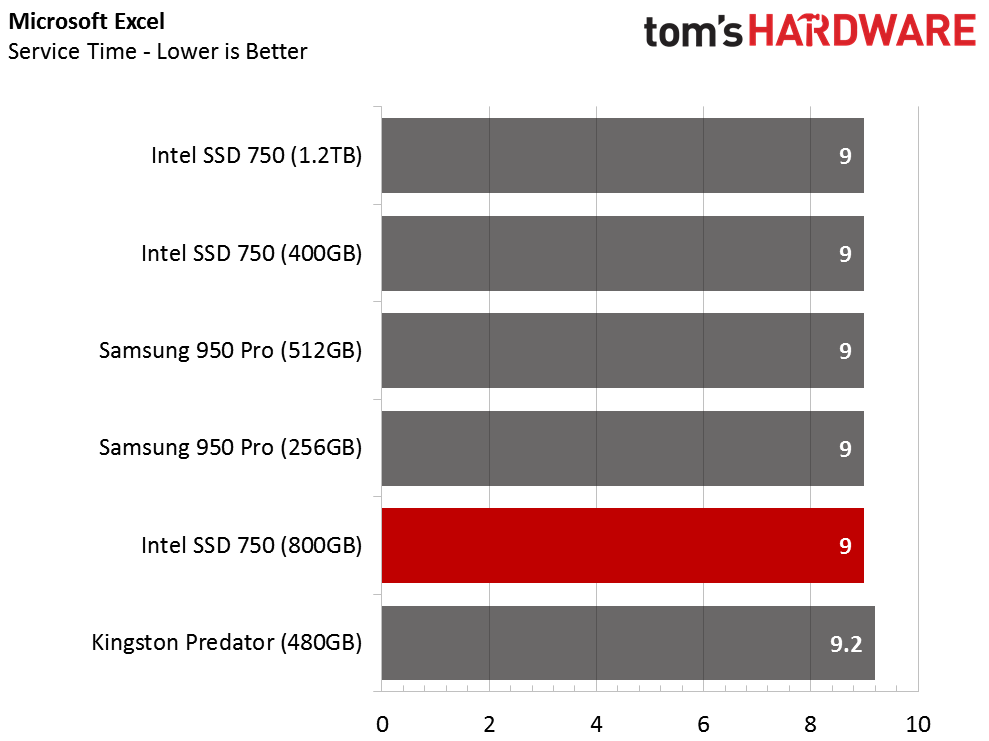
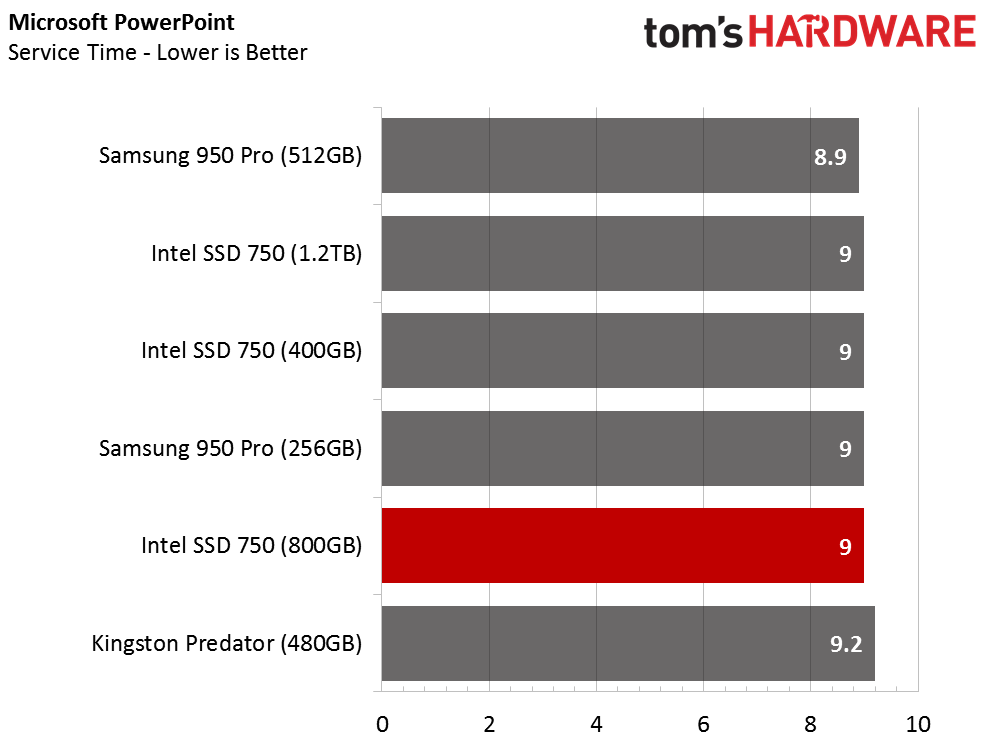
Using any of the SSD 750s on a desktop running one app at a time is like using a bulldozer to carry the family groceries. While certainly possible, it's not at all economical. Gamers and power users lust over the SSD 750 for its performance, but this is a workstation-class drive that some enthusiasts might consider affordable. Really though, you need a heavy workload to get the most out of Intel's 800GB SSD 750.
Total Storage Bandwidth
When you hit them with the right workload, Intel's SSD 750s can move a lot of data quickly. But their biggest problem comes from Samsung's 950 Pro and OEM SM951-NVMe. Looking back at the charts, we constantly see the 512GB 950 Pro beating Intel's SSD 750 in everything except random writes at low queue depths. If you are just looking for a boot drive, the SSD 750 isn't your best choice. Really, you need to be hitting it with advanced workloads (think heavy multitasking and lots of data writes) to get the most from it.
PCMark 8 Advanced Workload Performance
To learn how we test advanced workload performance, please click here.
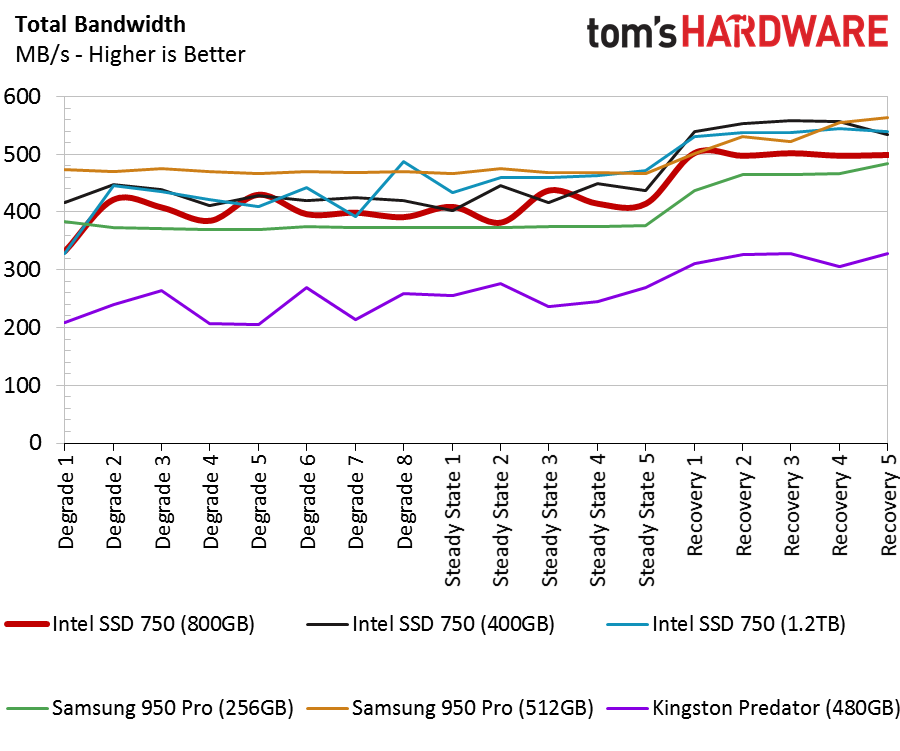
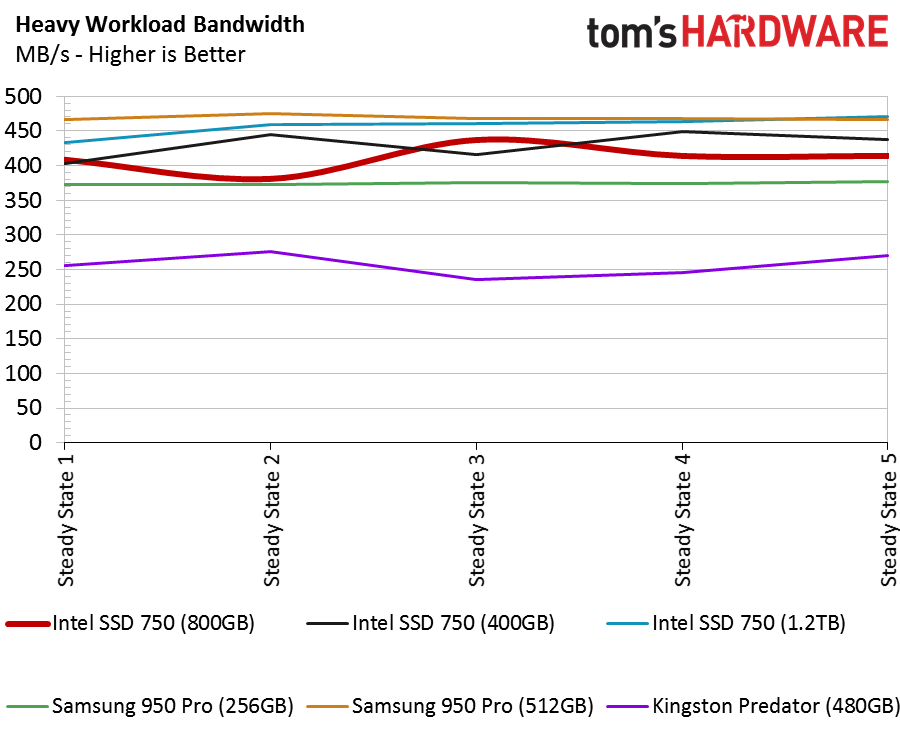
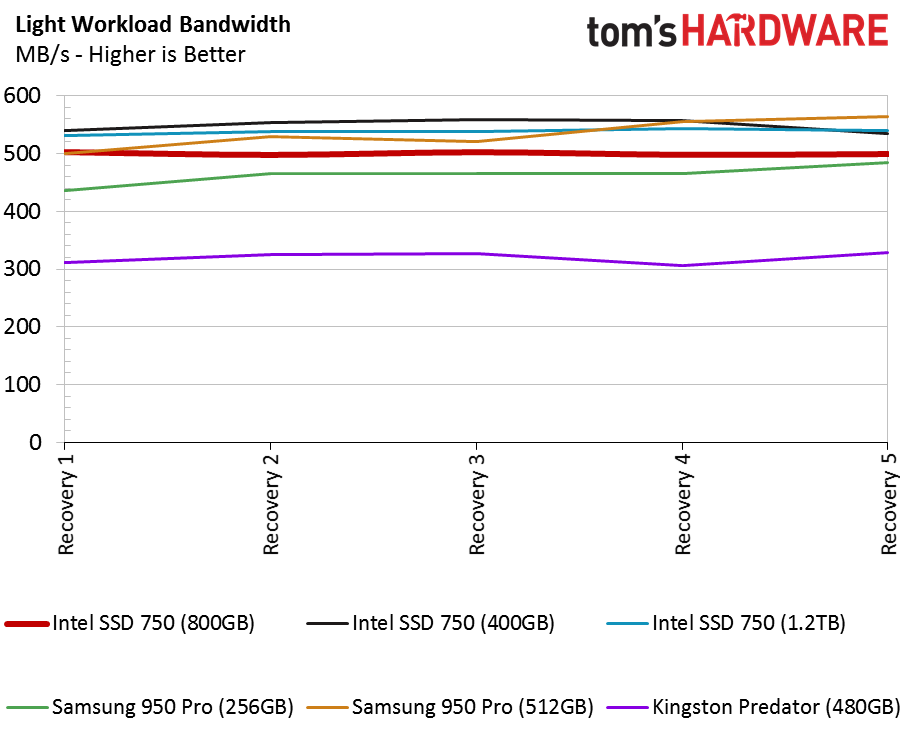
Under heavy workloads, Samsung's 512GB 950 Pro still outperforms the SSD 750s. The tables turn during recovery periods, though. Intel's strong background task engine and spare flash area are boons. In comparison, Samsung has always had issues with background activities chewing up the controller's clock cycles.
Access Time
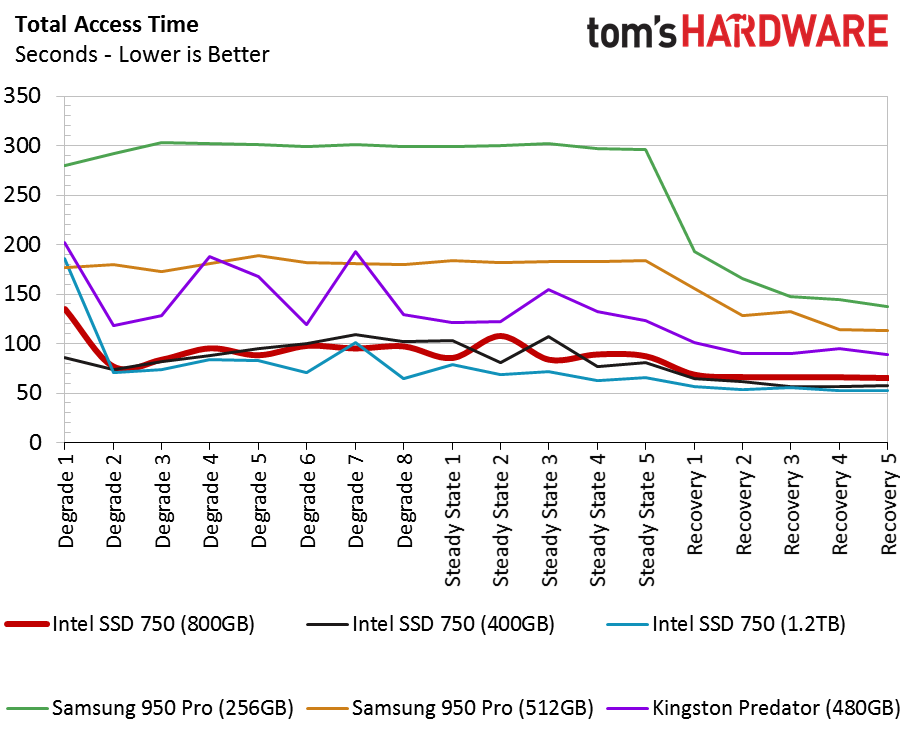
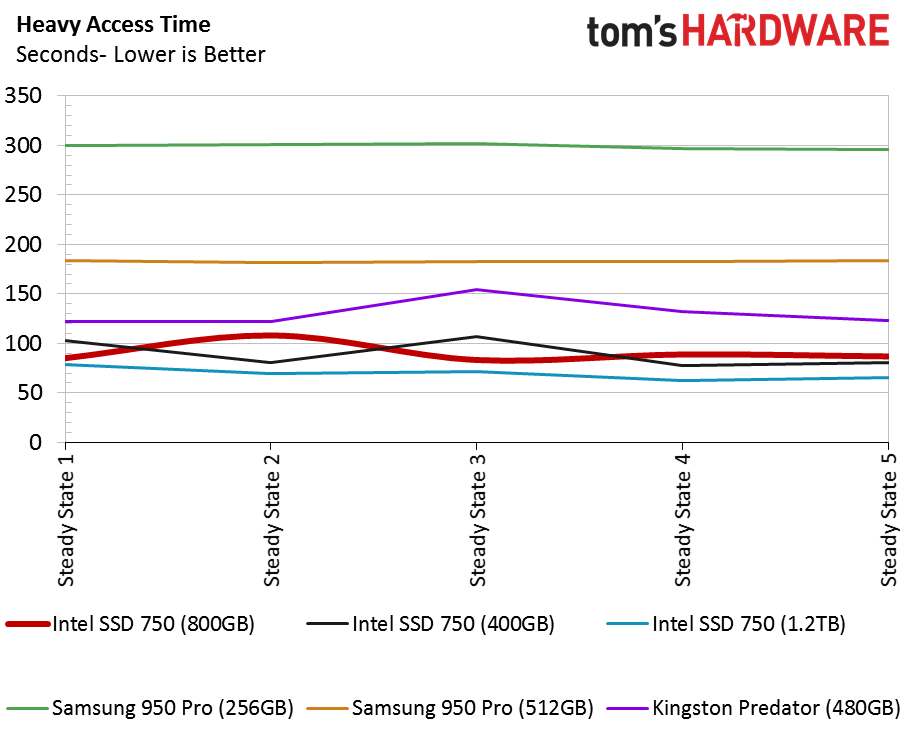
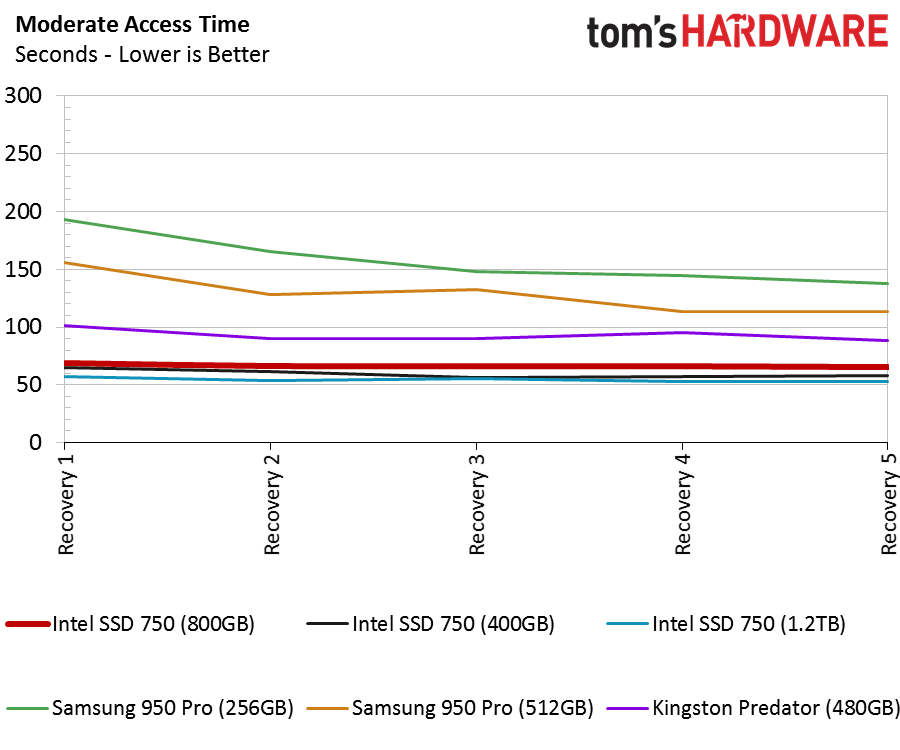
Intel wants us to know that throughput isn't everything. Access times and latency yield a much better way of evaluating the user experience. Instead of shooting for record-breaking performance numbers that most enthusiasts will never see, Intel focused R&D on delivering consistency.
Disk Busy Time
The Disk Busy Time test shows how long the drive actually works to complete each task. Our results tell us that Intel's SSD 750s are much more efficient in the trace-based benchmarks. All three SSD 750s generate similar results in real-world applications, so as a desktop enthusiast, try not to worry about the 800GB model's specs technically coming in under the 400GB and 1.2TB versions.
Get Tom's Hardware's best news and in-depth reviews, straight to your inbox.
Current page: Real-World Application Performance
Prev Page Mixed Workloads And Steady State Next Page Conclusion
Chris Ramseyer was a senior contributing editor for Tom's Hardware. He tested and reviewed consumer storage.
-
robodan918 Having owned the Samsung 950 Pro 512GB for a month now, I can say I'm consistently impressed and considering the price difference (I bought it for 167GBP / ~$240USD on an amazing sale) I can't justify the jump in price to the Intel 750 - even if random IOPS are nearly 2x higher. It'd probably be the difference of a blink of an eye. Still, as the 950 Pro is replacing an Intel 730, I can tell you that I've also been consistently impressed with Intel. If and when they go on sale, I usually end up convincing myself to buy them too.Reply -
Hanin33 is it me or is 70GB WPD abysmally low? especially for a 1.2TB drive. i suppose this drive series is not meant for high resolution video editing...Reply -
jchang6 there is problem in the mismatch of motherboards and PCI-E SSDs. The Xeon E3 motherboards may have 2 x8 slots, and the E5 boards might be 5x8 per socket, but more likely there is a combination of fewer slots, some x16, whereas all the affordable SSDs are x4, note that the P3608 is much more expensive. Could Intel put 2 750's on one x8 card, one connected to the lower x4 and the second to the upper x4? Alternatively, it would be nice if we could get an adapter for 2 M.2 to PCI-E x8.Reply -
rantoc So the Samsung 950 pro bets the intel 750 in low queue depths ie normal desktop workload (application starts and the like) and 750 beats 950 in higher qd's, both have their uses. Whats i like about my 950 pro over my 750 is its price/performance for desktop workloads.Reply -
hixbot I can't justify spending money on an ultra high-end SSD when Intel Optane is around the corner.Reply
